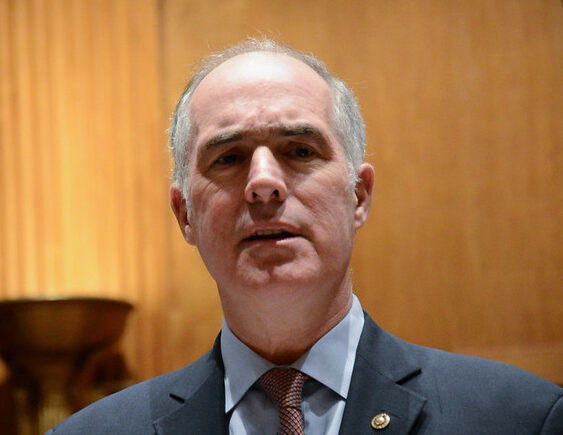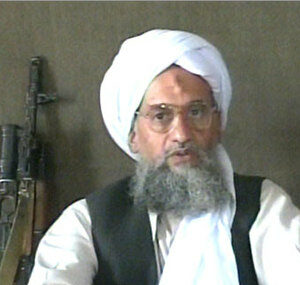Casey Backed Pro-Iran Policies That Helped Fund Deadly Terror Attacks

The Biden administration expressed shock when Israel released proof that members of a UN organization receiving hundreds of millions of U.S. dollars participated in the Oct. 7 attack. But all they had to do was follow Dave McCormick on Twitter.
Back in December, the GOP candidate for the U.S. Senate warned the United Nations Relief and Works Agency (UNRWA) was doing the work of Hamas terrorists.
“UNRWA is currently using U.S. tax dollars to support educating the next generation of terrorists,” McCormick posted. “As a senator, I would vote to end that funding immediately. Bob Casey & Joe Biden made this mess. I’ll help fix it.”
The same when Iranian-backed militants launched a drone attack that killed three U.S. servicemembers and injured dozens more. McCormick has been warning for years that the policy of allowing millions of dollars to flow to Iran’s mullahs would lead to American deaths.
So, how did last weekend’s events happen if the danger was well known? Because of the policy decisions of Democrats like Presidents Barack Obama and Joe Biden — and backed by Senate Democrats like Pennsylvania’s own Bob Casey Jr.
When Biden took office, one of his first foreign policy moves was restoring taxpayer funding for UNRWA, which President Donald Trump had halted. At the time, critics pointed to evidence UNRWA was working with Hamas and distributing antisemitic propaganda in Gaza.
Biden ignored those reports. But on Jan. 26, he was forced to “temporarily pause additional funding for UNRWA” after evidence emerged that at least 12 UNRWA employees were involved in the Oct. 7 Hamas terrorist attack on Israel.
“U.S. taxpayer dollars helped cover the paychecks for some of the perpetrators of the worst massacre of Jews since the Holocaust,” said David May with the Foundation for the Defense of Democracies. “Support for terrorism among UNRWA employees isn’t a bug; it’s a feature.”
And then there’s Iran.
The drone attack that took American lives last weekend was hardly a surprise. While these were the first U.S. deaths in the region since the conflict began last autumn, American troops in Iraq and Syria have been targeted over 158 times since October, all carried out by groups sponsored by or affiliated with Iran.
And Casey has repeatedly backed Obama and Biden policies allowing cash to flow to Iran’s terror-sponsoring regime.
In 2015, he was part of the Democratic minority that saved Obama’s Iran deal. The Obama administration arranged for a plane to secretly deliver $400 million in cash to the Islamist regime.
Casey said at the time that the Iran deal “is the best option available to us” because it “will be in our national security interest.” He added that, while he didn’t trust Iran, he believed the agreement kept Iran from getting a nuclear weapon.
“Implementation of this agreement may be challenging, and we need to be prepared for the possibility that Iran will violate the agreement,” Casey posted on social media.
While Trump pulled the U.S. out of the Iran deal — over Casey’s public objections — Biden took office pledging to return to the Obama-era policy. He has allowed millions in sanctions relief to flow to the Islamic Republic over the past three years, money that made its way to the terrorist group that killed Americans last weekend.
Richard Goldberg, a defense expert and former U.S. National Security Council staffer, recently described the Biden Iran policy this way:
“Biden removed the Iranian-backed Houthis in Yemen from the State Department’s list of foreign terrorist organizations, rescinded the American snapback of U.N. sanctions at the Security Council, relaxed sanctions to free up cash for Iran to pay some debts and increase oil exports to China, pulled European allies back from censuring Iran at the International Atomic Energy Agency (IAEA) in Vienna, and allowed Iran’s proxies in Iraq and Syria to attack U.S. forces with near impunity.”
All with Casey’s support.
But rather than slowing the flow of dollars to UNRWA or Iran, Casey has been an advocate. He has also declined to cosponsor the UNRWA Accountability and Transparency Act.
While Casey has remained silent on the UNRWA scandal, Republicans are speaking out.
“Today’s news further underscores that UNRWA is an irredeemable organization that plays a critical role in Hamas’ terrorist infrastructure,” Sen. Pete Ricketts (R-Neb.) said. “Biden should have never reversed the Trump administration’s decision to cut off U.S. support of UNRWA.”
On Sunday, Casey on social media about the deadly Iran-backed attack:
“I’m praying for the families of the U.S. servicemembers killed and for those injured by the attacks in Jordan,” Casey said. “This is a troubling pattern of Iran-backed groups feeling emboldened, and we must hold all of those responsible accountable for attacks on the U.S. and our allies.”
But, Republicans like McCormick ask, will it be enough to finally get Casey to change his policy on Iran?



